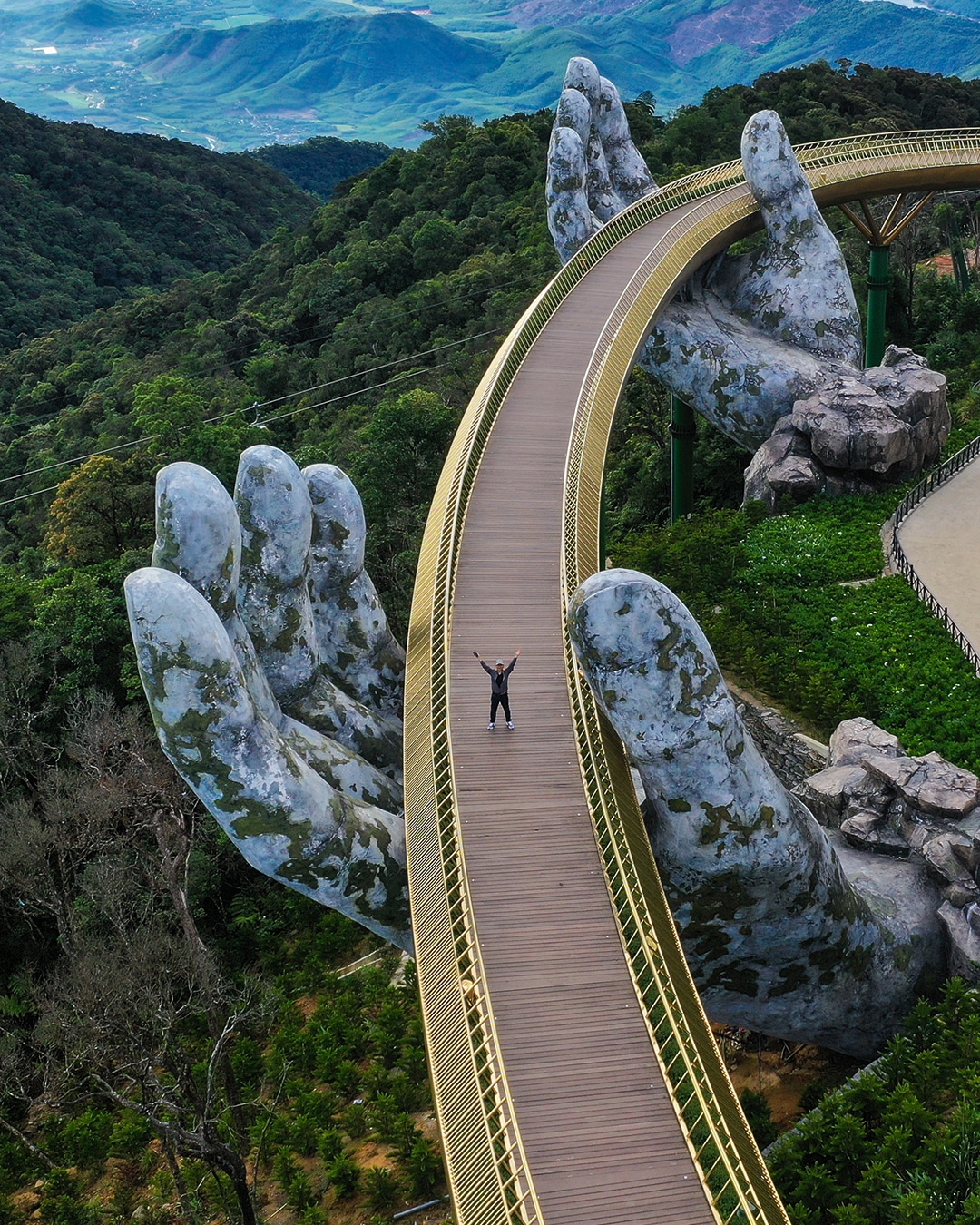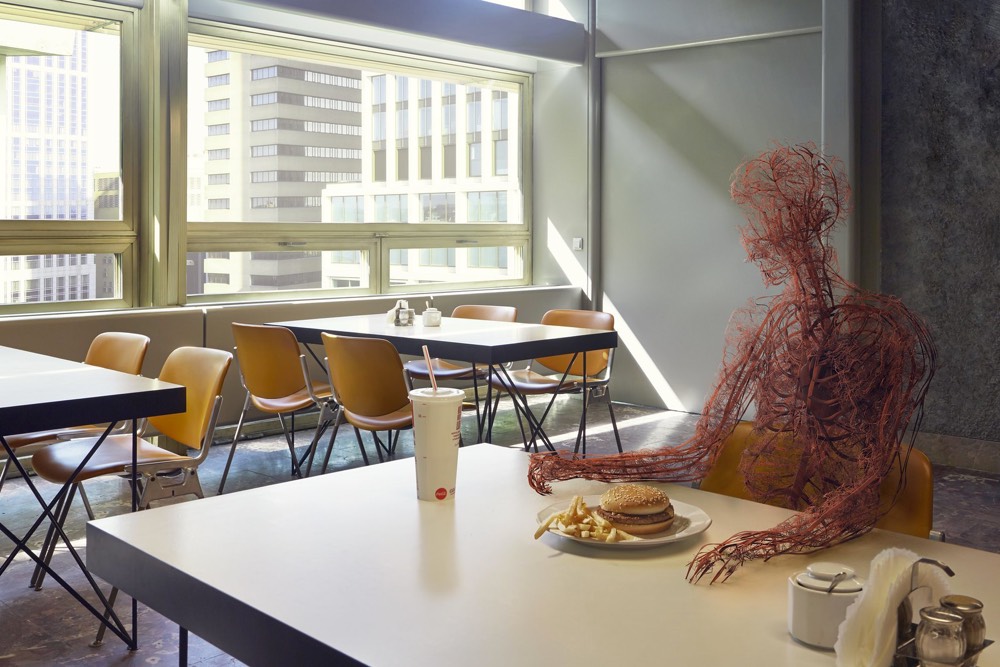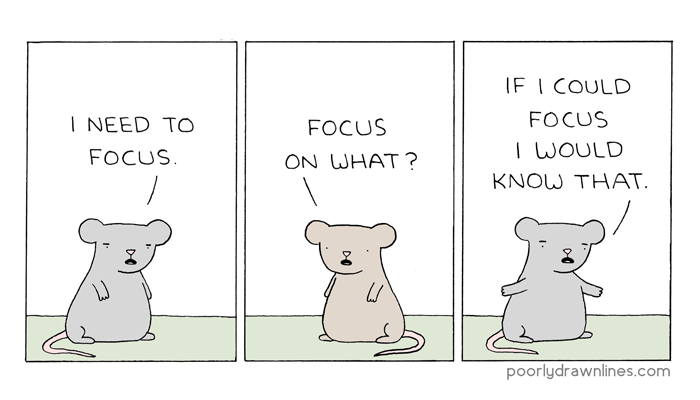Forgiving myself for not being able to focus
The Pomodoro technique isn’t working for me anymore.
Just a few months ago, I had no problems getting my work done in 25-minute chunks, and was able to do dedicated work without noticing where the time had gone at the end of each cycle. Just a few months ago, even when I eschewed the Pomodoro timer, I could write or read for hours and not feel the need to do something else.
Over the past few weeks, my ability to focus has completely disappeared. I set my timer for 25 minutes and then stare at it, not doing work, for minutes at a time. I do a burst of work and realize only six minutes have passed. Earlier this week, I fell asleep while reading a book, in the middle of the day. I can’t focus for long enough to figure out how to fix my inability to focus.
The good news is that I’m not alone: since February, there has been a “300 per cent increase in people searching ‘how to get your brain to focus’, an 110 per cent increase in ‘how to focus better’, and 60 per cent rise in ‘how to increase focus’.”
It turns out that this pandemic has weakened our pre-frontal cortexes—the part of the brain that is responsible for higher function—because of higher levels of stress chemicals that dampen the cortex’s effectiveness in order to prioritize more primitive function.
From The New Statesman:
Essentially, when faced with immediate physical danger, your prefrontal cortex shuts down to make way for the more primitive parts of your brain – the parts that can respond quickly and basically in order to protect you. […]
There are three major factors that make Covid-19 particularly potent for cutting off our prefrontal cortex: its invisibility; the lack of individual control we have over it; and being forced to go against our normal habits in order to protect ourselves.
As disturbing as it may be to think that this inability to focus is hard-wired into our brains, it’s also a bit of a relief to know that this isn’t a personal or moral failing. It makes sense that I’m finding it hard to focus, and that means I can forgive myself for my distracted mind.
That is, after all, the best thing we all can do, in this crisis or not: forgive ourselves for who we are. We can always strive to be better, but we can’t beat ourselves up for being ourselves.
It’s a message I’m taking with me into the long weekend: it’s okay to be me, right now, even if it means that I sometimes doze off mid-page in a book—no matter how big the pile of books on my nightstand is right now.
Two poems
The End of Poetry
Ada Limón
Enough of osseous and chickadee and sunflower
and snowshoes, maple and seeds, samara and shoot,
enough chiaroscuro, enough of thus and prophecy
and the stoic farmer and faith and our father and tis
of thee, enough of bosom and bud, skin and god
not forgetting and star bodies and frozen birds,
enough of the will to go on and not go on or how
a certain light does a certain thing, enough
of the kneeling and the rising and the looking
inward and the looking up, enough of the gun,
the drama, and the acquaintance’s suicide, the long-lost
letter on the dresser, enough of the longing and
the ego and the obliteration of ego, enough
of the mother and the child and the father and the child
and enough of the pointing to the world, weary
and desperate, enough of the brutal and the border,
enough of can you see me, can you hear me, enough
I am human, enough I am alone and I am desperate,
enough of the animal saving me, enough of the high
water, enough sorrow, enough of the air and its ease,
I am asking you to touch me.
———
memo for labor
Ryan Eckes
you cannot separate the job from the house from the rent from
the earth from the food from the healthcare from the water from
the transit from the war from the schools from the prisons from
the war from the water from the house from the healthcare from
the war from the transit from the schools from the food from the
job from the prisons from the rent from the earth
Some links
The impossible has already happened:
A disaster (which originally meant “ill-starred”, or “under a bad star”) changes the world and our view of it. Our focus shifts, and what matters shifts. What is weak breaks under new pressure, what is strong holds, and what was hidden emerges. Change is not only possible, we are swept away by it. We ourselves change as our priorities shift, as intensified awareness of mortality makes us wake up to our own lives and the preciousness of life. Even our definition of “we” might change as we are separated from schoolmates or co-workers, sharing this new reality with strangers. Our sense of self generally comes from the world around us, and right now, we are finding another version of who we are.
Who wants to play the status game?:
What makes you valuable? One answer is: the fact that you are a person. This way of answering rests on the thought that all people are equally worthy: value is something you get for free, by being a certain kind of creature. Another way to answer would be to talk about value that you (in particular, as opposed to others) have acquired for yourself. You have exercised your agency, choice and capacities in such a way as to make yourself (especially) valuable. These two answers point us to two very different conceptions of what it means to speak of the fundamental worth of a human being.
The end of office life as we know it:
The blurring of work and home lives might not be just a temporary side effect of the pandemic. Though children will (hopefully) go back to school in the fall, many white-collar workers will be strongly encouraged to work from home at least some of the time over the next year or so. While working remotely confers some mental-health and other benefits, the “job” as we know it might never be the same. Conferences, in-person meetings, and even handshakes might be deemed not worth the risk of infection. What might emerge is a future in which results-oriented introverts prevail while those who thrive on face-to-face interactions and office politics fumble. In the post-pandemic workplace, nerds may get their revenge.
We call workers ‘essential’ – but is that just referring to the work, not the people?:
What we’re seeing with the phrase “essential worker” is what linguists call “macrocosmic synecdoche,” which happens when we refer to a bigger thing or group than what we mean. For example, you might say “The U.S. has negotiated a trade deal.” In reality, this means the president, the secretary of commerce and their staffs participated in the negotiation, but not every member of the U.S. population.
What some essential workers are feeling is a case of macrocosmic synecdoche, in which “essential” is only really applying to the “work” part of “worker.”
Mastering the art of making a french omelette:
Butter. You can use olive oil, but butter, which smokes at a lower temperature, tells you more about the readiness of your pan. When it hits the hot surface, you want it to sing gently (il doit chanter) and begin melting into a creamy, bubbly mousse. The heat is then exactly correct. If the butter makes no noise, the pan is too cold. If it instantly sizzles and steams, it is too hot; pour it out, give the pan a wipe, and start again. If the butter is right this time, pour in your eggs, which should also make a sound, but more of a quiet murmur than a song.
Of course it is theoretically possible that some companies could actually survive the substantial new costs that this way of working will impose. But I stress that the word ‘theoretically’ is doing a lot of work in that sentence. That is because the reality is that in all likelihood almost none can, or will. Our economy is not geared to work in this way. And by geared I do not mean physically, where it is apparent that our capacity for adaptation is already quite phenomenal. Instead I refer to financial gearing, interpreted broadly.
What happens if i don’t like Fiona Apple?:
More than that, though, it plagues every other artist. Every time we hear that someone else has achieved mastery, or at least been recognized for achieving it, we’re reminded that we haven’t and likely never will (let alone be acknowledged for doing so). That’s the deepest feeling of isolation for an artist of all of them, that chasm between them and immortality. That’s the one they fear most that they (I) will never breach.
The web right now is a house divided: a silo for each little thing that you make. As I look back at how I’ve used the internet this year, I’ve come to realize it’s not sustainable for me to continue this way. Hosting my things all over the place is fatiguing, never mind attempting to keep track of everyone in multiple places. I’m pretty good at juggling, but I feel split and overwhelmed, because these networks are sorted by what things are (a photo, video, snarky quip, etc.), rather than who made them. My brain works in the opposite way. It’s people first, so I don’t think “I would like to see photos,” I ask myself, “I wonder what Josh has been up to?” To find out, I have to visit each little silo and piece the story together. So, if you’re like me, you speed through and develop an uncourteous stance toward it all, because the stuff you really care about gets mixed in with a lot of accompanying bullshit.
Why have I been so ridiculous about my neighbors? Why didn’t I try harder to meet these people? Now I see videos of musicians playing for their neighbors in a building’s airshaft, or a pair of children performing a duet for their neighborhood on a front porch, or that community that is putting teddy bears in the windows for little kids to spot when they are out on a safe and socially-distanced walk, and all this neighborliness looks heavenly.
Why nostalgia is our new normal:
From almost its earliest nonmedical considerations, nostalgia was regarded as a kind of reaction to the modern condition, a port in the discombobulating and alien storm that was modern life. Philosophers, critics, and theorists are still exploring variations on this theme, though as an object of critical theory, nostalgia has gradually lost any meaningful sense of place (or even, arguably, of time) and gotten more tightly entwined with the notion of authenticity and our search for the same (as such, its usefulness and meaning spiked slightly with the waxing and waning of postmodernist thought). This is what underlies something like Baudrillard’s observation, in Simulacra and Simulation, that, “when the real is no longer what it used to be, nostalgia assumes its full meaning”: the underlying implication is that, if we were awash in some sense of the authentic, we would not have much occasion to look backward to find it—let alone yearn for a return.
She predicted the coronavirus. What does she foresee next?:
What America needs most right now, she said, isn’t this drumbeat of testing, testing, testing, because there will never be enough superfast, super-reliable tests to determine on the spot who can safely enter a crowded workplace or venue, which is the scenario that some people seem to have in mind. America needs good information, from many rigorously designed studies, about the prevalence and deadliness of coronavirus infections in given subsets of people, so that governors and mayors can develop rules for social distancing and reopening that are sensible, sustainable and tailored to the situation at hand.
Fuck the bread. The bread is over.:
In fairy tales, form is your function and function is your form. If you don’t spin the straw into gold or inherit the kingdom or devour all the oxen or find the flour or get the professorship, you drop out of the fairy tale, and fall over its edge into an endless, blank forest where there is no other function for you, no alternative career. The future for the sons who don’t inherit the kingdom is vanishment. What happens when your skills are no longer needed for the sake of the fairy tale? A great gust comes and carries you away.
What happened to Val Kilmer? He’s just starting to figure it out:
The world outside had seemed to be getting so, so bad for so, so long, and this was the first whiff of overarching hope and positivity that I’d witnessed in I couldn’t remember how many months or years now — so much so that I almost couldn’t identify it when I saw it. The last glowing embers of hope coming from Val Kilmer? The movie hunk of my youth, who disappeared unceremoniously and now presented with an entirely different appearance and a bizarre accounting of where he’d been? But there was something familiar about it, like a faint knocking that came from inside me: It was the special kind of optimism that maybe only the faithful have, the enduring belief that some force will come along and save us from the centrifuge of despair we’ve found ourselves in. When is the last time you saw that up close?
The coronavirus crisis is showing us how to live online:
If there is a silver lining in this crisis, it may be that the virus is forcing us to use the internet as it was always meant to be used — to connect with one another, share information and resources, and come up with collective solutions to urgent problems. It’s the healthy, humane version of digital culture we usually see only in schmaltzy TV commercials, where everyone is constantly using a smartphone to visit far-flung grandparents and read bedtime stories to kids.
Social strivers have been buying knockoffs in America since modern consumerism took shape, in the decades after World War II. The advent of industrialized manufacturing and mass media helped create marketing as we know it, but it’s hard to imagine that the internet would be so bloated with speciously opulent mid-priced home decor and personal-wellness products if not for celebrities and, more recently, Instagram.
And a few more: - An unbelievable story of rape - Distance learning is better - To explore the memes of quarantine, we built a Quarantine House meme - Rap soundtracks the Michael Jordan doc. The N.B.A. wasn’t always that way - How well do you know the sounds of the birds around you? - Did the Italians actually teach the French the vinaigrette? - 17 artists capture a surreal New York from their windows - How to solve the New York Times crossword
The best architecture photos of 2020:

Lunar landing recreated from archival NASA photos:

Human After All, a collaboration between photographer Jan Kriwol and digital artist Markos Kay:

The ion tail of new comet SWAN:

